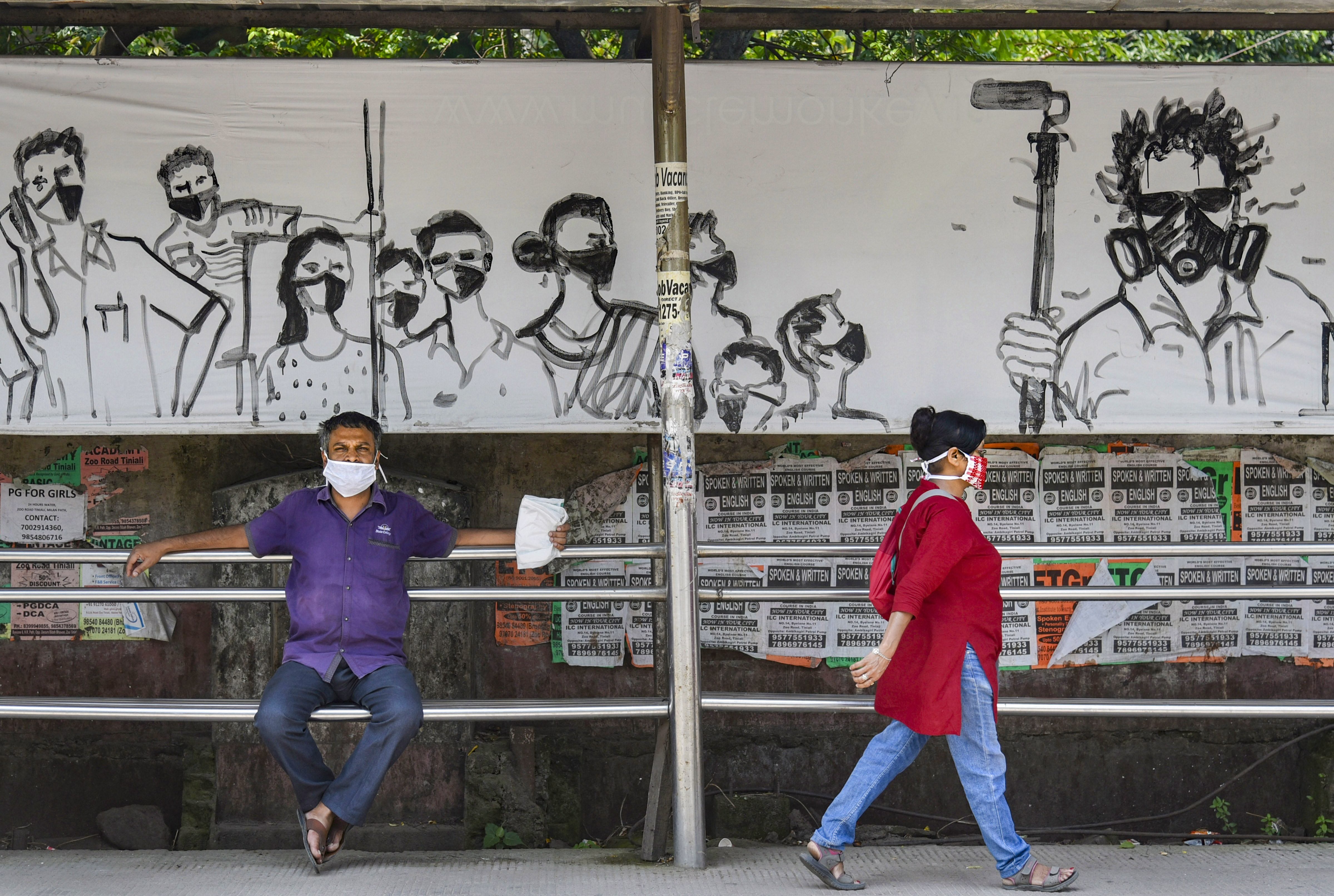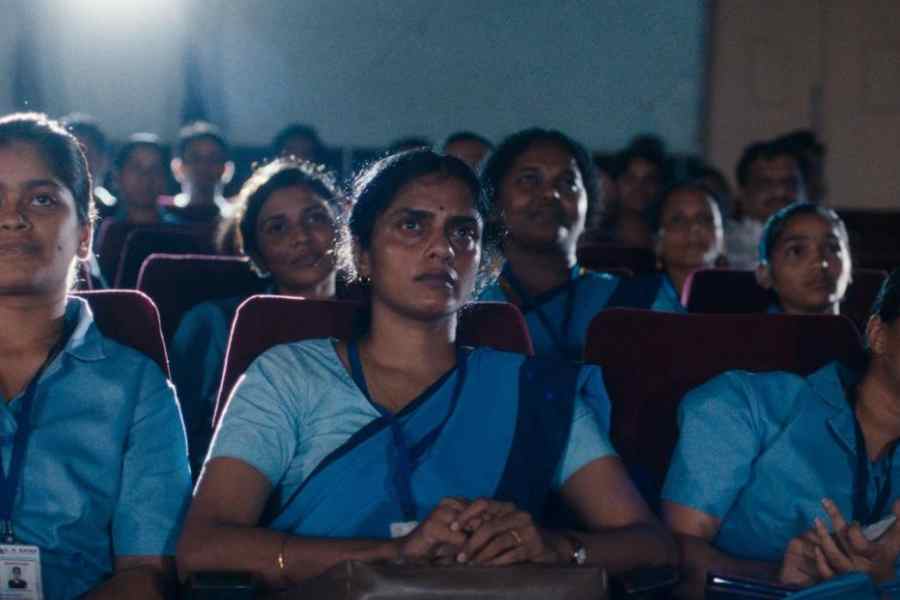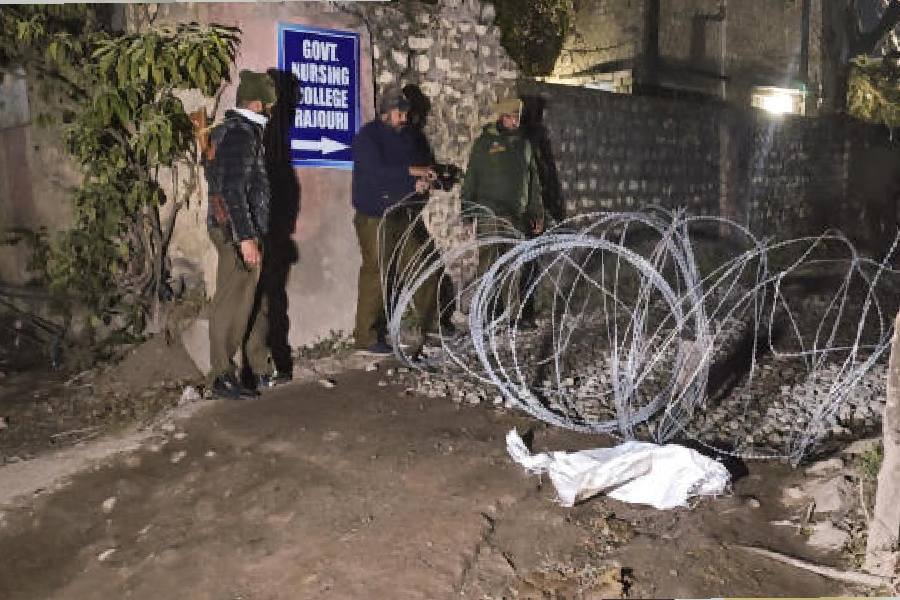The biggest single day spike of 3,900 novel coronavirus cases and 195 fatalities has been reported in the last 24 hours till Tuesday morning, the Union health ministry said, asserting that the delay in reporting of Covid-19 cases by certain states has led to the sudden spurt in figures.
Addressing a press briefing, joint secretary at the health ministry Lav Agarwal said timely reporting of cases and their management is very crucial while dealing with an infectious disease.
The ministry released data for cases and deaths from Monday 8 am to Tuesday 8 am. It said in this 24 hours period, India registered a record single day increase of 195 deaths and 3,900 cases, taking the total number of Covid-19 fatalities to 1,568 and cases to 46,433.
'Some states had not been reporting Covid-19 cases timely. After persuading them, they have reported such cases. This is the reason for the sudden spurt in the number of cases since yesterday,' Agarwal said, adding that the issue has been addressed.
'We are very comfortable in terms of managing Covid-19 as of now, but any laxity at the field level or any lack of cooperation may have its consequences,” he warned.
Agarwal advised states to effectively implement contact tracing, active case search and focus on the clinical management of cases on the basis of the numbers reported.
Asked if West Bengal was not reporting cases properly as a sudden spike of deaths had been reported there, he said, 'We coordinated with the state government and it was ensured that whatever late reporting of cases was happening gets streamlined. The state government has reported to us the additional cases.'
An increase of 98 fatalities due to Covid-19 and 296 cases have been reported from West Bengal so far since Monday morning.
Ensuring timely reporting of cases along with implementation of field level action was important while dealing with an infectious disease, Agarwal said.
Asserting that it was important that each and every contact of positive patients needs to be traced, Agarwal said conducting surveillance for Severe Acute Respiratory Infection (SARI) and influenza like illness (ILI) symptoms in facilities in containment zones and otherwise, yields very valuable data and guides further action.
Lockdown has yielded very positive results, doubling time of cases has improved from 3.4 days before lockdown to 12 days now, he said, adding that it is important to sustain the momentum.
Responding to a question over India registering one of the biggest spikes when many countries were showing a downward trend and the reasons behind the rise in number of fatalities, Agarwal said that a larger number of deaths had been reported in one or two locations which was the primarily reason behind the increased nationwide death toll.
'However, we need to understand that vis-a-vis other parts of the world where suddenly larger number of cases were being reported, India has actually, through the process of lockdown and through containment efforts, been ensuring that cases do not increase.
'We are still following a similar trajectory. So when you will compare us with other parts of the world you will realise that their absolute number of cases would have probably gone down a little bit but India has maintained a similar trajectory of having lower number of cases,' he said.
However, having said that, Agarwal said, it was a day-to-day challenge for them in terms of ensuring that not only the trajectory is maintained, but then efforts are made towards lowering down the trajectory.
To a question over rise in cases during the lockdown period, Agarwal said that any infectious disease moves in geometric progression.
'So if you see that your base of cases being lower, then automatically the next day when you see the number of cases increase will be lesser vis-a-vis the fact that after a few days when the number of cases have become bigger. That is how infectious diseases generally get monitored,' he said.
'It is important to understand that we need to come to a level where day-to-day case increase should actually not be happening in geometric progression,” Agarwal said.
“It should be happening in such a way where the number of cases that do get added on a daily basis are lesser than that and subsequently, to a level where we can actually increase the doubling rate much higher so that cases remain stable and that is where we end up seeing a flattening of the curve,' he said.
Agarwal also expressed concern over healthcare professionals getting infected and stressed that they should take the required precautions. Also, infection prevention control practices along with proper biomedical waste management should be followed in healthcare settings, he added.










